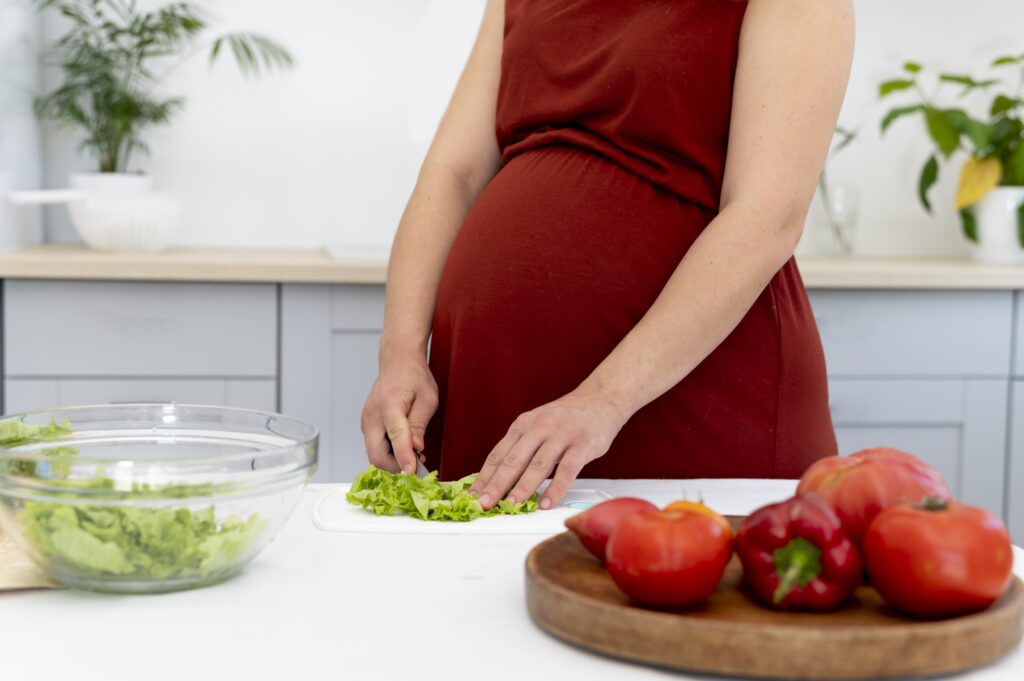Your diet during pregnancy is extremely important for the well being of your baby. A good weight gain during pregnancy is 10-12kg. The average weight gain expected during the first 3 months is 1kg, with gains of approximately 250-500gm during the remaining months. These numbers will vary depending upon your weight and height at the start of the pregnancy.
Healthy Eating - Eating For Two

A good weight gain during pregnancy is 10-12kg. The average weight gain expected during the first 3 months is 1kg, with gains of approximately 250-500gm during the remaining months. These numbers will vary depending upon your weight and height at the start of the pregnancy.
If you currently follow a sensible diet, your energy requirement will not need to increase, or minimally by about 200 calories (840kj) per day, perhaps with some additional milk or fruit, or an extra cheese sandwich, etc. Regular physical activity is as important now, as it was before, and again after your delivery you should keep up your routine. This will ensure that you return to your original weight in good time, as well as making you feel more energetic (to cope with the new little one in the family).
Iron
Your blood volume increases in pregnancy, therefore additional iron is necessary. You should take an additional 30-36mg of iron daily. Most of the extra iron is used up in the second half of pregnancy, when your developing baby will begin to store its own iron.
Calcium
Development of your baby’s skeleton means that calcium is absorbed from the mother, therefore you need to increase your intake. Calcium requirements are highest during the last 3 months of pregnancy. For vegetarians, a Vitamin B12 supplement is also recommended. Discuss this with your doctor.
Fats & Oils
Saturated fats are best avoided in pregnancy. These are found in meat fat, dripping, copha, cream. Instead, use mono-unsaturated fats (found in canola margarine, olive oil, nuts & seeds, avocado) or sunflower oil, safflower oil, most vegetable oils, oily fish, nuts, polyunsaturated margarine. All types of fat provide the same amount of energy.
Artificial Sweetners
Saccharine and Cyclamate are artificial sweeteners which should be avoided. Safe sweeteners are Equal, NutraSweet, Sucralose (Splenda). Suitable sweeteners found in commercial foods are Sunett and Aclame.
